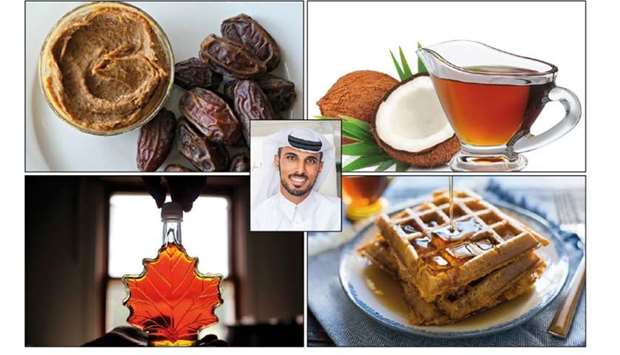Industrial bee farming has been known to ‘cull’ hives after harvesting because it’s cheaper than feeding the bees throughout the winter. Those farmers who do choose to keep the hives in operation feed the bees that insipid sugar water, which in turn weakens their immune systems and leaves them vulnerable to infection.
In the honey industry, beekeepers often clip queen bees’ wings to prevent swarming, kill and replace a queen after just one or two years, and artificially inseminate them using drone bees who are killed in the process — here’s a breakdown of the best alternatives.
Date Paste
A great option for us here in the Middle East, date paste is another natural sweetener that has no cruelty behind it, and it’s easy to make yourself. All you need to do is blend a handful of pitted dates with water until the mixture reaches a thick liquid state. They are loaded with fibre and nutrients that are not found in refined sugars. Dates contain vitamins and minerals like potassium, magnesium, copper, manganese, iron and are also high in antioxidants.
Coconut Nectar
Made from the reduced sap of coconut palms, coconut nectar has a sweet, tangy, taste with no coconut flavour. It is high in amino acids, vitamins and minerals. The nectar also is low-glycaemic.
Maple Syrup
Maple syrup is a syrup usually made from the xylem sap of sugar maple, red maple, or black maple trees, although it can also be made from other maple species. In cold climates, these trees store starch in their trunks and roots before the winter; the starch is then converted to sugar that rises in the sap in the spring.
Brown Rice Syrup
Brown rice syrup is a sweetener made by exposing cooked rice to enzymes that break down the starches and turn them into smaller sugars. Then all the “impurities” are filtered out and all that is left is a thick dark syrup with a caramel type flavour.
* The author is an expert in vegan wellbeing and health. Instagram handle: @Ghanim92

